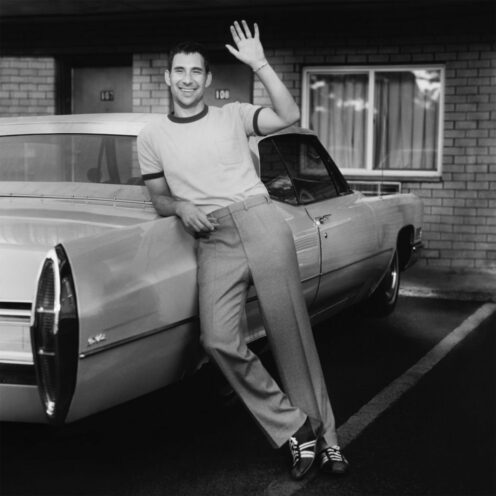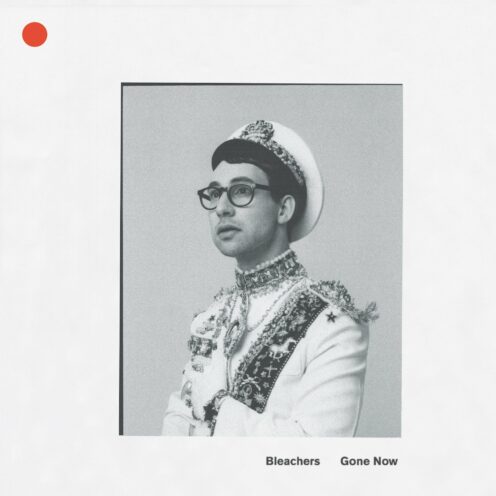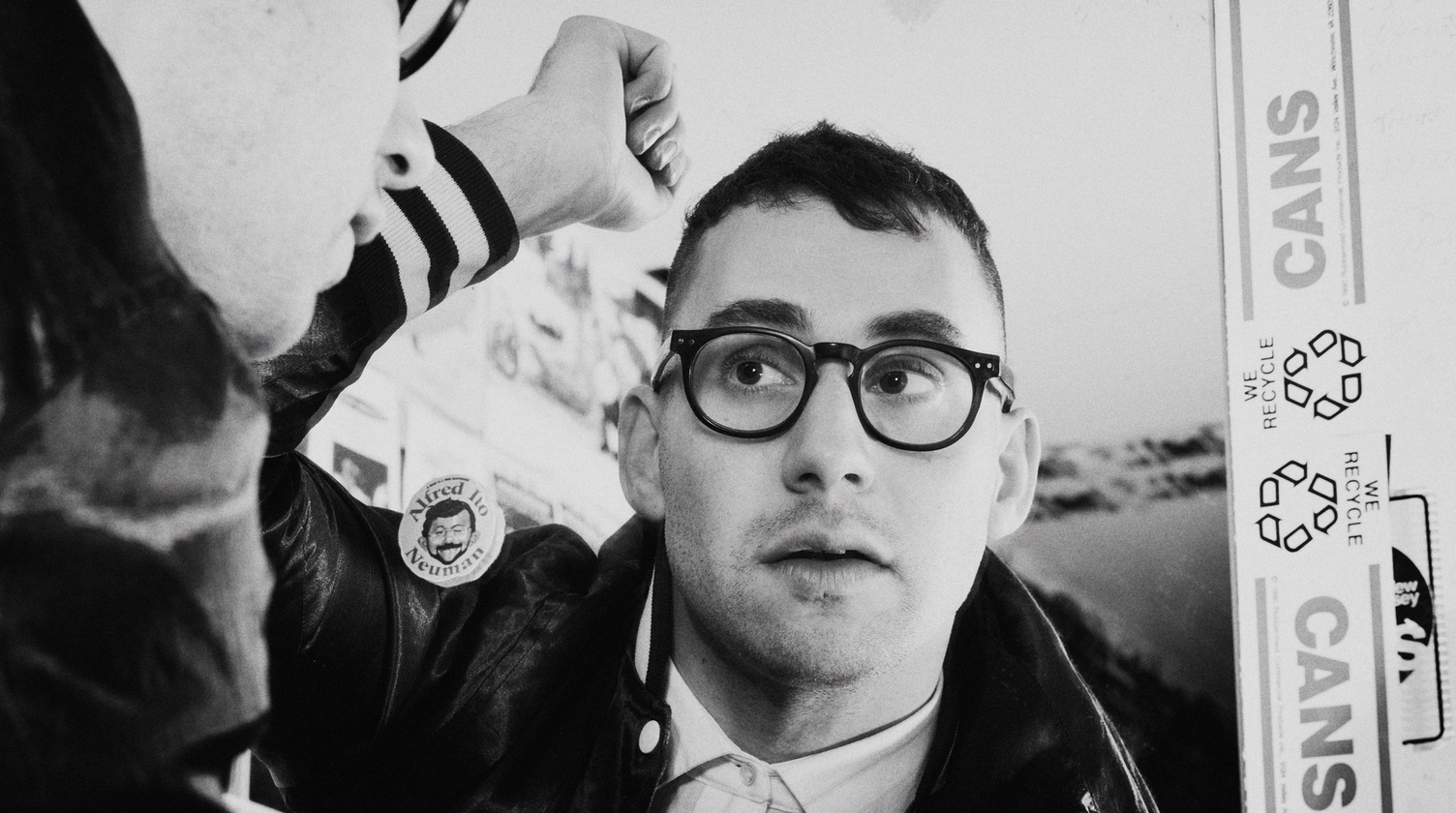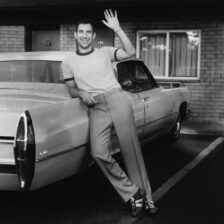The atmospheric rise of Jack Antonoff continues on the latest full-length record by Bleachers. The same man that kicked his career off with Steel Train, showcased his songwriting prowess with fun., re-established himself as a solo artist with Bleachers, and along the way became a Grammy winning producer, Antonoff is certainly no stranger to the bright lights. The pressure seemed to be on this ultra-talented artist on Bleachers (his first album on Dirty Hit), and yet Antonoff delivers in more ways than one in his most fully realized record to date. With a sound that feels like a modern take on Bruce Springsteen, paired with the atmospheric elements found in the brooding synths of The 1975 and The Midnight, Bleachers does the near-impossible task of paying homage to where he came from while simultaneously moving the needle forward in his artistic growth. Jack Antonoff is a man of many talents, and they are all on full display on the fourth studio album from Bleachers.
Read More “Bleachers – Bleachers”Bleachers Talks With Zane Lowe
Jack Antonoff of Bleachers sat down with Zane Lowe for a new interview.
Read More “Bleachers Talks With Zane Lowe”Bleachers Perform on Colbert
Bleachers performed “Jesus is Dead” on Colbert.
Read More “Bleachers Perform on Colbert”Bleachers – “Me Before You”
Bleachers have shared the new song “Me Before You.”
Read More “Bleachers – “Me Before You””Jack Antonoff Details New Soundtrack
Jack Antonoff has detailed the new soundtrack for the upcoming Apple TV+ series The New Look.
Read More “Jack Antonoff Details New Soundtrack”Bleachers – “Tiny Moves”
Bleachers have shared the new song “Tiny Moves.”
Read More “Bleachers – “Tiny Moves””Jack Antonoff On New Podcast
Jack Antonoff of Bleachers is on the latest Kyle Meredith With… podcast. (Overcast link.)
Bleachers Preview New Song
Bleachers Perform on Seth Meyers
Bleachers performed “Alma Mater” on Seth Meyers.
Read More “Bleachers Perform on Seth Meyers”New Interview With Jack Antonoff
Jack Antonoff recently talked with Vulture:
There’s a song called “Tiny Moves,” which no one’s heard yet. The real story there is I started writing music when I was 14 or 15, and my younger sister was sick then. She died when I was 18, so all my formative experiences with writing music were writing about this massive, heavy, big loss and grief. Then, obviously, that grief grows and changes. It’s such a fertile place to write from, and I’d felt a little bit resigned, not in a comfortable way, just like, Okay, my place in life as a writer is to write about loss through the lens of age. And don’t get me wrong, there’s tons of that on this album. But I met my now-wife, and it feels like a lot of the mythology and armor that I wore — we all say, like, “I can’t get relationships right,” “I don’t do this,” “I’m bad at this.” And when you have a big shift like that, which was really meeting my person, it’s brilliant and amazing, but it’s also destabilizing ’cause you have to deal with all of the past, where you lived by this code that was bullshit. And within that, I found myself writing more conversationally, very deep and very intense. How do you have such a great loss and then also explore other parts of life? I wasn’t able to do that in the past, because I felt like it was not honoring my loss to write about anything else. So, this is the first album where I explore other things, and there’s presence to it that I haven’t had.
Bleachers – “Alma Mater” Video
Bleachers have released a video for “Alma Mater.”
Read More “Bleachers – “Alma Mater” Video”Bleachers Announce New Tour
Bleachers have announced some new tour dates.
Read More “Bleachers Announce New Tour”Bleachers Announce New Album
Bleachers will release their new album on March 4th. Pre-orders are now up.
Read More “Bleachers Announce New Album”Jack Antonoff Talks with The Face
Jack Antonoff talked with The Face in a new wide ranging interview:
Antonoff says that his motivation, and his process, has rarely wavered since he first began producing; he and his collaborators dream “about what a record can be,” and sometimes that results in “really transcendent shit” and sometimes it doesn’t. There is no way, he says, to “optimise” his process, because there’s no formula. “I do think that there’s a misconception about what I do and what pop music is,” he says. “There’s a certain group of people who think it’s about appealing to the masses, [which is] not how I feel. I’ve never made anything hoping that everyone would like it.”
His closest collaborators – like Swift and Del Rey – are people with whom he feels like he can “drill even further” into one sound or idea, a feeling he describes as “crazy magic”. But the goal is never to top the charts, or appeal to every possible listener.
“I remember with Norman, Lana wanted to give the mastering engineer her credit card over the phone because she barely wanted anyone to know that the album was being made,” he says. “These records are so insular, so it’s a little hard to get it up for someone who has a hot take when [these albums] are reaching the people who they’re intended to reach. It’s cool if you get it and it’s cool if you don’t, but also like, there’s always the option to just shut the fuck up.”
Bleachers – “Modern Girl”
Bleachers have shared “Modern Girl” on all streaming platforms.
Read More “Bleachers – “Modern Girl””







